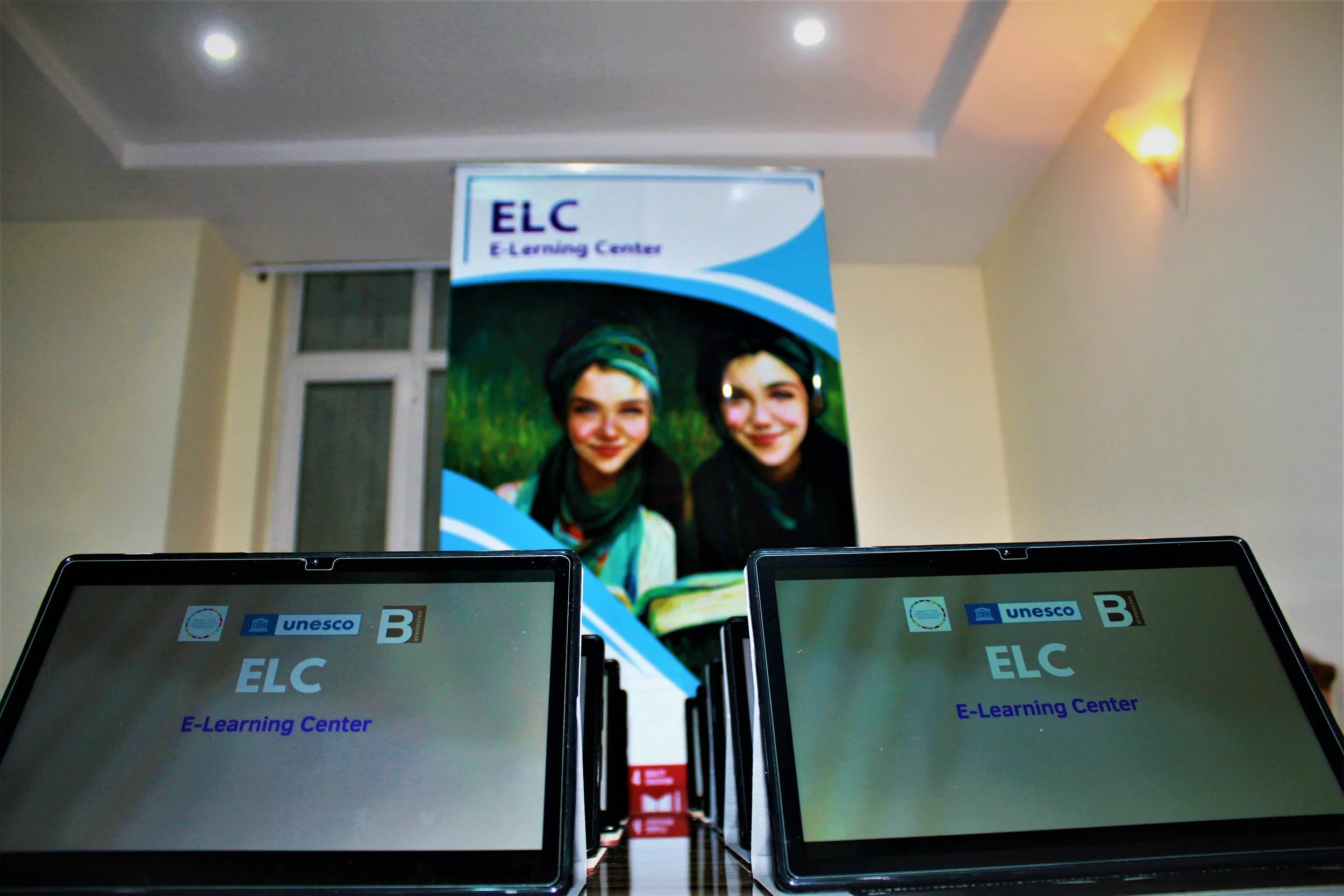
E-LEARNING CENTERS IN AFGHANISTAN
In February 2022, the Network of Former Youth Delegates to the United Nations (The Network) organized a high-level closed-door meeting with the UN Youth Envoy and other high-level UN members supporting the humanitarian response and youth protection in Afghanistan. The meeting was also attended by university representatives from Germany-based Bard College (Berlin) and US-based Bennington College (Bennington, Vermont). The purpose of the meeting was to create a platform where students share their stories and their hopes for a better future and offer potential solutions on how to make education more accessible for young Afghans. The immediate outcome of this meeting was that Bennington College agreed to enroll all the Afghan students that attended the meeting into Bennington’s classes for the Spring 2022 term.
For the duration of the Spring 2022 term, 9 Afghan students from different provinces have been granted online scholarships for attending classes at Bennington College. However, most students could not fully benefit from the courses offered due to the lack of stable internet connection and functional electronic devices. Providing the necessary equipment and stable internet connection to each selected individual tends to be high in costs and complexity in logistics. Therefore, with the mandate of supporting youth and higher education, UNESCO collaborates with the Network of Former Youth Delegates to the United Nations to establish educational hotspots where students (particularly girls) gather in a safe space with the necessary equipment and stable internet connection and attend online classes and carry out relevant academic activities such as research and access to journals and academic materials. This investment can become one feasible method of mainstreaming quality education to youth who demonstrate the potential to excel in their respectable fields.
Since then, the Network has been actively advocating for the establishment of E-Learning Centers across the country where free access to the Internet and Devices will be provided to students. The Network of Former Youth Delegates of the United Nations, with the support of seed funding from UNESCO, will establish an E-Learning Center (ELC) where students attend classes/courses at Bennington College in a safe space with a stable internet connection. This ELC, upon its success, can become one feasible method of supporting online learning for higher education learners in other provinces.
This program is a result of multiple advocacy initiatives by the Network of Former Youth Delegates to the UN with the sole purpose of consolidating support from UNESCO and UNFPA under the umbrella of the Adolescent and Youth Working Group in Afghanistan strictly aimed at higher education. One of the outcomes is a Call to Action document that prioritized the 4 key recommendations below:
Supporting higher education teaching and learning materials and facilities, including necessary equipment and stable Internet connection in educational hubs, to facilitate alternative learning modalities;
Availing scholarships and grants to vulnerable tertiary education students (particularly female) in Afghanistan;
Partnering with development and humanitarian partners and providing online courses that are accredited; and
Supporting teachers (particularly female) with necessary capacities to ensure equal educational opportunities for female students in a safe learning environment.

